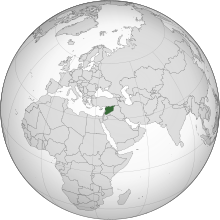
Syria is a country in Western Asia. It is a unitary republic consisting of 14 governorates and is the only country that politically espouses Ba'athism. Since March 2011, Syria has been embroiled in an armed conflict, with a number of countries in the region and beyond being involved militarily or otherwise. Political instability poses a significant threat to future economic development. [1] Foreign investment is constrained by violence, government restrictions, economic sanctions, and international isolation. Syria's economy also remains hobbled by state bureaucracy, falling oil production, rising budget deficits, and inflation. [1]


